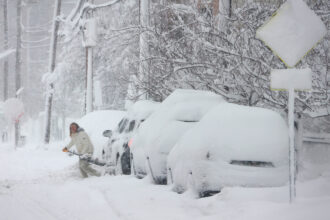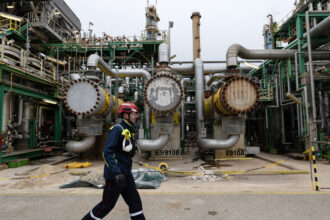The Tennessee Valley Authority’s Inspector General released a critical audit this week on the federal company’s response to last December’s massive ash spill disaster at its Kingston power plant in eastern Tennessee’s Roane County.
The incident involved a failure in a coal ash containment pond that released more than a billion gallons of toxic waste into a nearby community and river.
The interim report finds that TVA:
* Failed to implement the National Incident Management System in accordance with a Homeland Security Presidential Directive, which hampered communications and delayed emergency response following the spill.
* Released inaccurate and inconsistent information to the media.
* Failed to communicate claims policies and decisions to victims of the spill in a timely manner.
TVA generally agrees with the report’s findings, but it takes issue with the charge of widespread inaccuracies in its media statements.
The IG’s report points to a number of these inaccuracies, including a dramatic initial underestimate of the amount of ash spilled, an incorrect statement that no dead fish were found downstream of the spill, and TVA’s reworking of its coal ash description to say it consists primarily of "inert material not harmful to the environment."
TVA responds to those charges in the audit report. "We respectfully disagree with the description of information being inaccurate or inconsistent ‘in many cases,’ given the level of media inquiries, number of statements, interviews, briefings, etc, that was being handled; although ‘in several cases’ the initial information was incorrect," it says.

But as it turns out, the IG didn’t even capture the full extent of the company’s efforts to downplay the disaster’s dangers.
Earlier this year, the Institute for Southern Studies reported on how TVA misled the public about the radiation threat from the spilled ash.
The company claimed that the ash was no more dangerous in terms of radioactivity than low-sodium table salt, but subsequent testing by independent scientists found significantly greater radiation risks than the company acknowledged.
The audit report does not include any discussion of this.
The IG recommends that TVA consider establishing a "clearly defined protocol" requiring verification from more than one source before releasing a statement to the media. It also calls on the company to work with local residents to improve communications related to the damage claims process.
Meanwhile, TVA has won a protective order to keep secret "sensitive information" related to the spill in the seven multimillion-dollar lawsuits that have been filed since the disaster, the Knoxville Metro Pulse reports. The order applies to trade secrets and proprietary information.
(Originally published at Facing South)
See also:
Dam Breach in Tennessee Releases Tsunami of Toxic Coal Sludge
A Tale of Two Disasters: Coal Ash and Tar Sands Tailings
Supreme Court: Coal Giant’s Campaign Dollars Pose Risk of Bias
Clean Energy Climate Bill Gives Coal a Competitive Future
Coal’s Hidden Costs Make it Anything but Cheap
About This Story
Perhaps you noticed: This story, like all the news we publish, is free to read. That’s because Inside Climate News is a 501c3 nonprofit organization. We do not charge a subscription fee, lock our news behind a paywall, or clutter our website with ads. We make our news on climate and the environment freely available to you and anyone who wants it.
That’s not all. We also share our news for free with scores of other media organizations around the country. Many of them can’t afford to do environmental journalism of their own. We’ve built bureaus from coast to coast to report local stories, collaborate with local newsrooms and co-publish articles so that this vital work is shared as widely as possible.
Two of us launched ICN in 2007. Six years later we earned a Pulitzer Prize for National Reporting, and now we run the oldest and largest dedicated climate newsroom in the nation. We tell the story in all its complexity. We hold polluters accountable. We expose environmental injustice. We debunk misinformation. We scrutinize solutions and inspire action.
Donations from readers like you fund every aspect of what we do. If you don’t already, will you support our ongoing work, our reporting on the biggest crisis facing our planet, and help us reach even more readers in more places?
Please take a moment to make a tax-deductible donation. Every one of them makes a difference.
Thank you,











